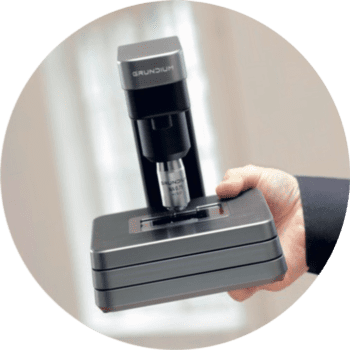1 Aug 2023
This month’s VBJ Diagnostics Insight feature sees Zoetis explain how, by leveraging AI in dermatology, veterinary professionals can optimise their workflow and provide advanced health care for their patients.

As AI continues to evolve, we are witnessing its emergence within veterinary medicine and the significant advancements it is beginning to make in the field of veterinary diagnostics, with growing potential to incorporate technology to enhance testing and elevate the quality of care offered to veterinary patients.
Deep learning – a subfield of AI – allows computer programs to rapidly analyse vast amounts of data, learn to perform tasks relevant to veterinary diagnostic imaging and use algorithms for precise identification. Therefore, AI holds immense potential for busy clinics that are experiencing sustained high demand following the “pet boom” during the coronavirus pandemic and the shift to hybrid working.
 Dermatology visits – specifically for itch – also remain top reasons for veterinary visits¹. However, dermatological conditions are often challenging to diagnose accurately and require extensive time and expertise. It also revealed that diagnosis and recommendation for treatment were being made on the basis of presenting clinical signs and physical examination alone in 72% of cases².
Dermatology visits – specifically for itch – also remain top reasons for veterinary visits¹. However, dermatological conditions are often challenging to diagnose accurately and require extensive time and expertise. It also revealed that diagnosis and recommendation for treatment were being made on the basis of presenting clinical signs and physical examination alone in 72% of cases².
The kind of automation that has been made possible through AI offers veterinarians a tool to save a significant amount of valuable time, speeding up diagnosis and informing clinical decision-making. Consequently, treatment plans can be devised more efficiently, leading to improved clinical outcomes for the pet and enhanced medical value for the pet owner.
By leveraging AI in dermatology, veterinary professionals can optimise their workflow and provide advanced health care for their patients.
Leading the way in this frontier is Zoetis’ first-of-its-kind AI dermatology application – a recent expansion of its Vetscan Imagyst platform’s capabilities.
The multipurpose platform now facilitates in-clinic tests that are fully integrated into the company’s cloud-based AI platform, already harnessing the strength of AI with its existing canine and feline faecal analysis, blood smear analysis and digital cytology applications.
Sophie Duguid, diagnostics national veterinary manager at Zoetis UK, said: “Performing cytology is a critical component of dermatology work, but this is often challenging for veterinary health care teams to deliver, given the considerable time pressures in clinical practice.
“Using a compact scanner along with AI technology and backed by a global network of expert clinical pathologists, Vetscan Imagyst AI dermatology allows clinicians to rapidly detect the presence or absence of skin infection in canine and feline dermatology cases, which allows for clinically informed decision-making.”
The AI dermatology application goes beyond simple analysis. It thoroughly examines impression smears and ear and skin swabs, and accurately identifies the presence or absence of – and differentiates between – infectious agents such as cocci bacteria, rod bacteria, and Malassezia, as well as inflammatory cells, such as macrophages, eosinophils, lymphocytes and neutrophils.
 Its capabilities have been validated through a study comparing its performance to that of expert American College of Veterinary Pathologists clinical pathologists, providing consistent and accurate results within minutes.
Its capabilities have been validated through a study comparing its performance to that of expert American College of Veterinary Pathologists clinical pathologists, providing consistent and accurate results within minutes.
Jonathan Marquez, chief financial officer and business manager at Northwood Animal Hospital in North Carolina, explained how Vetscan Imagyst has made a difference to his clinic. He said: “It helps all parties involved – from the patient to the client – to our business. Once the process for the images starts, it allows my team a window of somewhere between 8 to 11 minutes or so. This is time where they can continue with medical records, assist other team members, assist doctors, or actually help to build that bond with the pet owner and the pet in our facility.
“We are able to focus on covering possible other needs, making sure anything that needs to get emailed or sent to the client gets done while the Imagyst is doing its magic, which is amazing because we no longer have to – in my opinion – sit there and wait, and waste those precious minutes.”
Traditional methods are still used to prepare the slides, but once prepared, Imagyst takes over to analyse the slides, freeing up valuable time for staff, patients and pet owners.
To further ensure confidence, Zoetis offers clinical pathologist support for reviews on request and even provides complimentary virtual specialist consultations. This comprehensive support system ensures that veterinary teams can rely on the AI dermatology application for accurate diagnoses and efficient workflows.
To find out more, visit https://cloud.mc.zoetis.com/AIDermUK